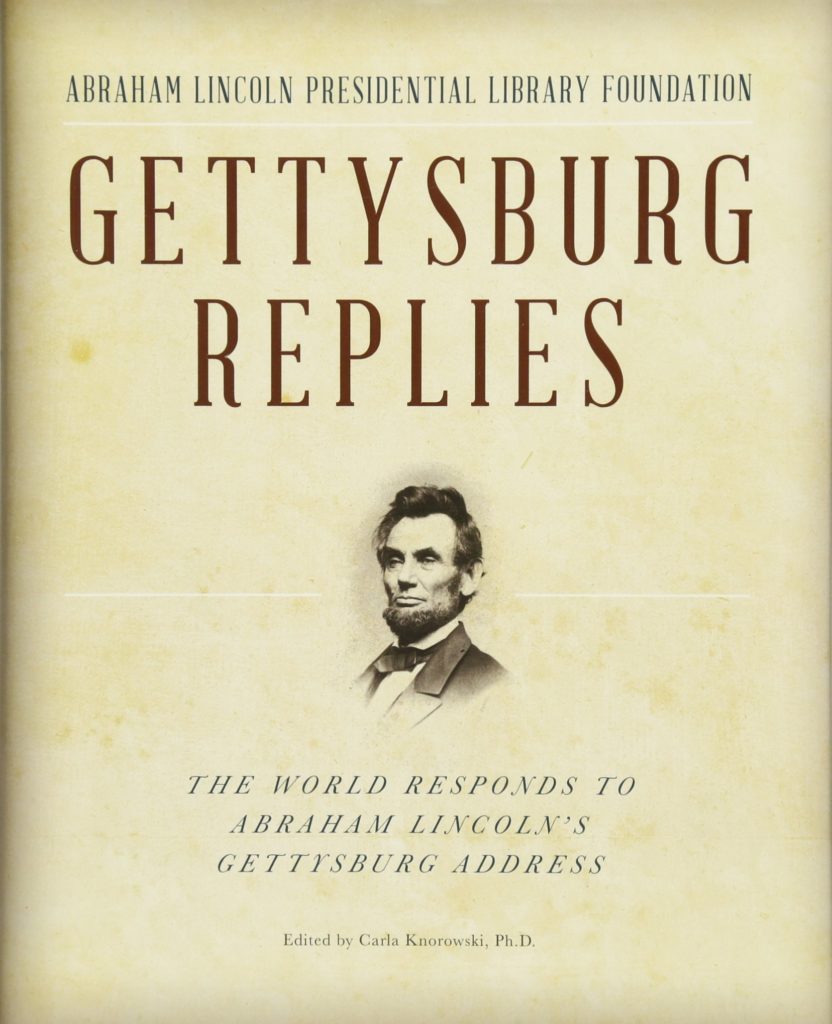I am student of history, so I was excited last year when I learned that the Abraham Lincoln Presidential Library and Museum was sponsoring what they were calling the Gettysburg Replies project. The project challenged presidents, judges, historians, filmmakers, poets, actors, and others to craft 272 words of their own to celebrate Lincoln, the Gettysburg Address, or a related topic that stirs their passions. (272 words may not sound like a lot, but it was all President Lincoln needed to write what most folks consider one of the greatest speeches of all time.) The project included contributions from President Jimmy Carter, Supreme Court Justice Sandra Day O’Connor, General Colin Powell, filmmaker Steven Spielberg, Poet Laureate Billy Collins, and many others, including yours truly. The hardcover book looks great and you can buy a copy from the Abraham Lincoln Presidential Library store here.
I was honored to be included in this fun and interesting project. My contribution, in 272 words (you can count them), is reprinted below:
In November of 1863, when President Lincoln went to Gettysburg to dedicate the new cemetery there, my great-great-grandfather Richard Rutter Ricketts was working the land at his farm in southwestern Iowa. Born in 1802, Richard was too old to fight in the still raging Civil War, but he was hardly indifferent to the struggle. Richard had grown up surrounded by slavery. As an apprentice carpenter in Baltimore, and later in New Orleans (where he made coffins during the terrible cholera epidemic of 1832), he worked alongside slaves, witnessing firsthand the injustice of their plight. Slavery may have been a settled part of his world, but it was not something he could abide, and in the 1840s, after he married my great-great grandmother Charlotte Platt Ricketts, an ardent abolitionist from a family of abolitionists, he joined the anti-slavery cause in earnest. When he and Charlotte moved to Iowa in the 1850s, they became active participants in the Underground Railway, their farm in Civil Bend, near the Missouri River, serving as a well-known transit point for escaping slaves.
Lincoln’s speech at Gettysburg was reported widely at the time, and there is little doubt that Richard and Charlotte heard about it. I’m sure its words resonated deeply with them. The proposition that all men are created equal was a defining principle of their lives, as was the notion that the great task of securing freedom remains a continuing obligation for us all. It’s a legacy I’ve spent my life trying to honor, for it remains every bit as pertinent today as it was when Mr. Lincoln first spelled it out back in my great-great-grandparents’ time.

